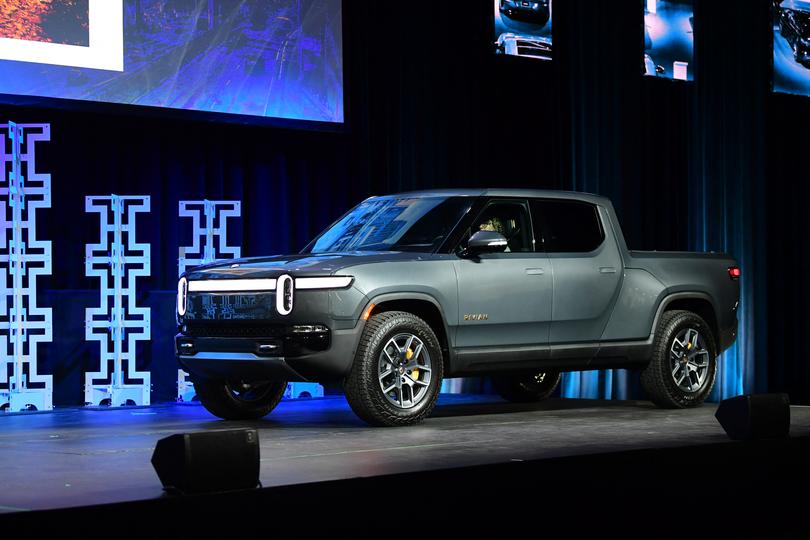Investors flee tumbling EV upstarts once hailed as ‘next Tesla’
There was a time when the backing of some of the world’s deepest pockets and the mere ambition to sell electric cars was enough to inspire confidence in the stocks of upstarts Rivian Automotive and Lucid Group.

There was a time when the backing of some of the world’s deepest pockets and the mere ambition to sell electric cars was enough to inspire confidence in the stocks of upstarts Rivian Automotive and Lucid Group. Now investors have all but thrown in the towel on the shares.
All it took was a fresh dose of reality from the two companies this week around cooling demand for EVs.
Rivian, which makes electric pickups, SUVs and delivery vans and counts Amazon as its top shareholder, said its production will stay flat at last year’s levels. It also announced plans to shrink its workforce again.
Sign up to The Nightly's newsletters.
Get the first look at the digital newspaper, curated daily stories and breaking headlines delivered to your inbox.
By continuing you agree to our Terms and Privacy Policy.Lucid, majority-owned by Saudi Arabia’s sovereign wealth fund, projected only a slight increase in output over 2023.

Both forecasts fell far short of analysts’ expectations. For investors, the sense of gloom has been building since October, when Tesla warned of sagging interest in EVs.
Though shares of the EV giant have fared poorly since then, losing around 20 per cent and massively underperforming the broader market, the impact on smaller rivals like Rivian and Lucid has been nothing short of disastrous.
“If you are a hyper-growth company in what is seen as a disruptive industry and you are not growing your topline, you are in trouble,” said David Mazza, chief strategy officer at Roundhill Investments.
“Having an anchor investor like Amazon or the Saudis gives them a longer runway from a capital perspective, but their growth will still be slower and margins thinner than what was once expected.”
Shares of Irvine, California-based Rivian are down by about 44 per cent since Tesla’s October warning - the first in a series of grim outlooks from global EV-makers and suppliers - and closed Friday at a record low.
Newark, California-based Lucid has dropped some 33 per cent in the same period, and isn’t far above its own nadir.
Still, had it not been for their wealthy backers - Amazon has a 17 per cent stake in Rivian, and Saudi Arabia’s Public Investment Fund holds roughly 60 percent of Lucid, data compiled by Bloomberg show - the stocks could be looking far uglier.
“The presence of these names is a comfort to investors and a cushion to the price,” Mazza said.
“If these stocks were just relying on the EV hype, then they will be down much worse.”
Amazon in an emailed statement said that the recent results from Rivian don’t change anything about the e-commerce company’s “existing investment, collaboration, or order size and timing.” Rivian has a deal with Amazon to sell it 100,000 electric delivery vans by 2030.
Saudi Arabia’s PIF didn’t respond to an email seeking comment outside of the fund’s regular business hours on Friday.
Bloomberg
Originally published as Investors flee tumbling EV upstarts once hailed as ‘next Tesla’
